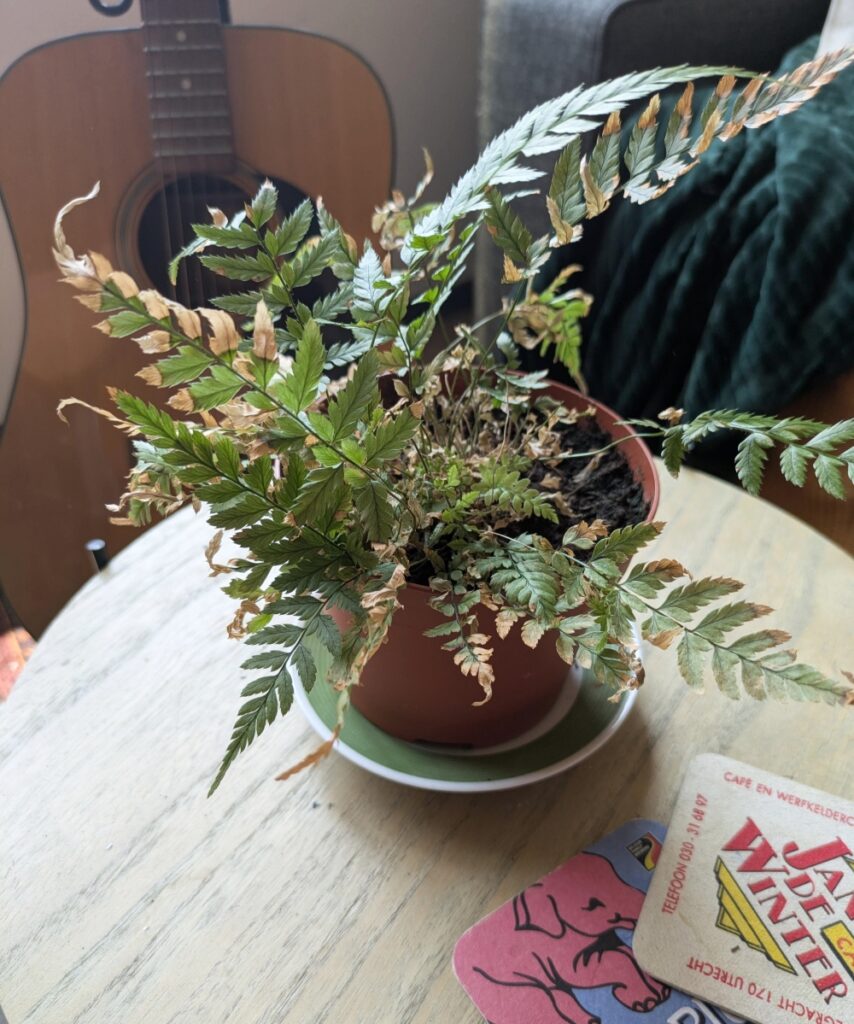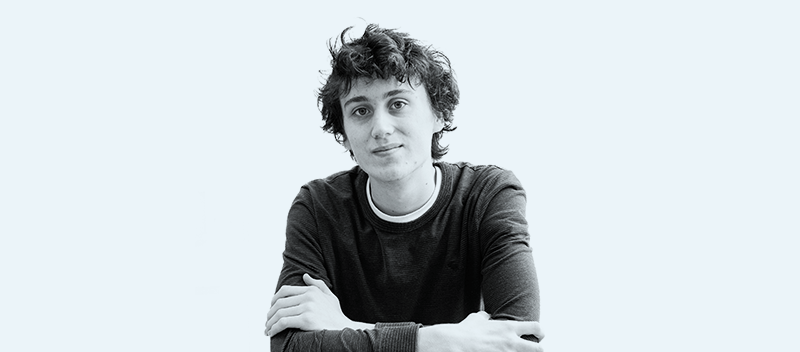With a pounding heart, I hurry out of the supermarket. I quickly look over my shoulder to see if I am being followed. When I see that the coast is clear, I open my coat. There it lies, sad and shriveled against my chest. The poor little plant hasn’t been watered for days. It would have been close to being thrown out, pot and all.
When I saw this poor fellow with that neglected look, I couldn’t help but to rescue him. All he needed was a little tender love and care. Unfortunately, as a plant, you are in the wrong hands with the very young shelf workers. Every Wednesday, Death walks past the plant department with a trash bag in hand and mercilessly flings the whole mess in. The next day there is a new collection, and we all act as if nothing happened.
I must confess that I am not a fan of stealing myself, but when a life depends on it, I am easily persuaded

This plant was about to bite the dust, and I couldn’t bring myself to abandon it. One might wonder why I didn’t just pay for the plant, but contributing to this capitalist malpractice is two bridges too far for me. If I pay, I am guilty of starving plants and if I don’t, I am a thief.
I must confess that I am not a fan of stealing myself, but when a life depends on it, I am easily persuaded. Robin Hood would understand my moral dilemma. On the one hand, you don’t want to steal, but on the other hand, all the farmers in the village are starving because the duke is having half the harvest served to himself.
Like Robin Hood, I see myself as an ethically responsible and modest thief. In this unjust houseplant economy, I’d rather be a thief than a murderer.
Translated using DeepL.
Philip Timmers (19) is a first-year bachelor’s student in International Development Studies. He likes gardening and is always up for some fun. He enjoys reading in nature on warm summer days.

 Photo Guy Ackermans
Photo Guy Ackermans 

